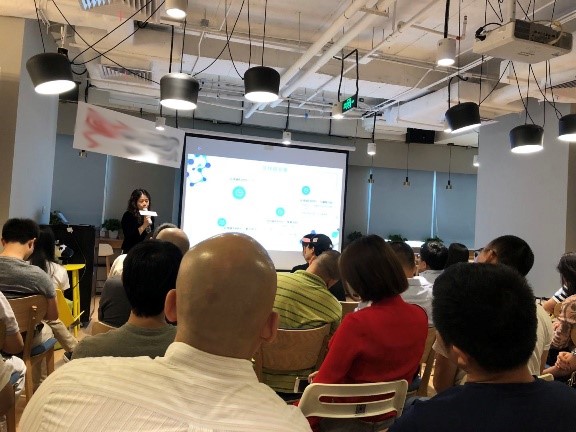For a short period of time, I thought perhaps digital entrepreneurship was so empowering that gender did not matter in the network era, particularly in metropolitan areas. But as I further progressed the investigation with more respondents and engaged with literature, I learnt more about female entrepreneurs’ lives and work, writes Luo Yiling
_______________________________________________
When I started the fieldwork on female digital entrepreneurship and coworking phenomena in Shenzhen, China, I did not know how to specify the questions concerning entrepreneurs’ gendered experiences. I asked a serial entrepreneur, Lisa1, ‘do you have any gender troubles as an entrepreneur?’ Unexpectedly, Lisa felt offended. She said with discontentment, ‘I do not know why you pose a question like this. I do not think that gender matters at work.’
Lisa described herself as ‘gender-neutral’, who had been entrepreneurial since childhood and started a number of businesses after her late twenties. Lisa (pseudonym) believed that she deviated from the normative gender roles. She said, ‘I will not start up if I think that gender matters.’ In China, although female labour participation is among the highest in the world, women’s role as mother and wife is highly emphasised and they are considered to be the primary caregivers at home (Ji et al., 2017). Female entrepreneurs are uncommon until recent years.
For a short period of time, I thought perhaps digital entrepreneurship was so empowering that gender did not matter in the network era, particularly in metropolitan areas. But as I further progressed the investigation with more respondents and engaged with literature, I learnt more about female entrepreneurs’ lives and work and reflected on Lisa’s story. Does gender not matter for Lisa? Lisa started up because she wanted to have a work-life balance after marriage. She did not have an ambitious business plan for growth. She started the business out of passion and aimed to keep it small and stable. And she did not want leadership in the start-up team. Her business experience coincided with the typical characteristics of women’s business and their roles in the start-up team. And Lisa could recall the limited participation and under-presented leadership of female entrepreneurs, the gender divide in business interactions and the limited collaboration with coworking neighbours. Similar to Lisa, many respondents believed that the entrepreneurial path was gender-neutral. They might not recall any important gender inequality in terms of their rights or interests during entrepreneurship at the beginning of the interview. However, if I asked about some details about their entrepreneurial process, all respondents had some gender troubles to share and some of them further reflected on the gender impacts on their lives and careers.

Specifically, the mismatch between the existence of structural inequality and individualisation of gendered experiences was coined as ‘post-feminist problem’ (Gill, 2002) or ‘gendered dilemma’ (Marlow and Mcadam, 2015) concerning female entrepreneurs in technology fields in literature. The research by Gill (2002) on new media suggests that 75% of female respondents denied any structural disadvantage in new media. In the study by Marlow and Mcadam (2015), none of the female interviewees viewed their subordination as embedded in wider social-economic inequality, even though each of them could count some instances of gendered practices. Post-feminism and neoliberalisation tend to individualise the risks and responsibility, which complicates the assorting of the gendered practices at work and the initiation of collective actions. Besides, the gender practices are embedded in daily practices and gendered individuals may not be aware of such gender practices. As Martin (2003, p. 344) states, ‘many gendering practices are done unreflexively; they happen fast, are “in action,” and occur on many levels.’ Sometimes female entrepreneurs may also deny the sexism and present the normative masculinity to avoid marginality (Marlow and Mcadam, 2015).
The gendered dilemma pushed me to reflect on my theoretical stances and my role as field researcher. I started the research from a more structural perspective that emphasised the structural material inequality between genders. However, during the fieldwork, I realised that the gendered differences for entrepreneurs were also subjective, nuanced, fractured, temporal, and multi-dimensional, which propelled me to integrate a post-structural perspective. Theoretically and empirically, bridging the discussions on structural inequality and cultural construction of gender identity becomes critical and challenging in the continued research (McDowell, Batnitzky and Dyer, 2007).

Besides, as a researcher, I have the responsibility and power to decide the questions, guide the flow, interpret the interview, and decide the forms of representation (Rose, 1997). The gendered dilemma brought challenges to my interviews and required in-depth knowledge about entrepreneurs’ daily life to further probe the neglected gendered practices. Meanwhile, I revised the questions to make them more open and less value-laden despite the impacts of my gender perspective on the fieldwork becoming inevitable (Hoskins, 2015). To provide a comprehensive and credible narrative of the respondents’ stories, I marked down the objective structural disparity, female entrepreneurs’ subjective interpretation of these experiences,the ‘trivial’ gendered episodes reported by them in conjunction with my interpretation. I believe that a combination of these discussions is valuable for understanding the nuanced multi-dimensional gender dynamics at work, which respects respondents’ account without neglecting the gendered pattern (Gill, 2002). Without identifying these daily constructions of differences, these nuanced ‘everyday practices of exclusion’ may be naturalised in the guise of gender equality (Reimer, 2016). These insensible ‘trivial’ gendered practices may repeatedly construct the differences between gender, question the female entrepreneurs’ competence, and hinder women’s career developments and happiness (Martin, 2003). Therefore, the recognition of the gendered dilemma is essential for conceptualisation and fieldwork that should not be neglected for further studies on female entrepreneurs.
Notes
1 The serial entrepreneur’s name is not Lisa. Her name has been changed to preserve anonymity and privacy.
References
Gill, R. (2002) ‘Cool, creative and egalitarian? Exploring gender in project-based new media Work in Euro’, Information, Communication & Society, 5(1), pp. 70–89.
Hoskins, K. (2015). Researching female professors: the difficulties of representation, positionality and power in feminist research. Gender and Education, 27(4), 393–411.
Ji, Y., Wu, X., Sun, S., & He, G. (2017). Unequal care, unequal work: Toward a more comprehensive understanding of gender inequality in post-reform urban China. Sex Roles, 77(11–12), 765–778.
Jorgenson, J. (2002) ‘Engineering selves: Negotiating gender and identity in technical work’, Management Communication Quarterly, 15(3), pp. 350–380.
Marlow, S. and Mcadam, M. (2015) ‘Incubation or Induction? Gendered identity work in the context of technology business incubation’, Entrepreneurship: Theory and Practice, 39(4), pp. 791–816.
Martin, P. Y. (2003) ‘Saying and doing Vs. said and done’, Gender and Society, 17(3), pp. 342–366.
McDowell, L., Batnitzky, A. and Dyer, S. (2007) ‘Division, segmentation, and interpellation: The embodied labors of migrant workers in a greater London hotel’, Economic Geography, 83(1), pp. 1–25.
Reimer, S. (2016) ‘“It’s just a very male industry”: Gender and work in UK design agencies’, Gender, Place and Culture, 23(7), pp. 1033–1046.
Rose, G. (1997). Situating knowledges: Positionality, reflexivities and other tactics. Progress in Human Geography, 21(3), 305–320.
________________________________
About the research
This blog is partially extracted from the author’s doctoral dissertation, ‘Gender, Place and Entrepreneurship in the Network Age: A Case Study of Shenzhen, China’ at the University of Hong Kong. The thesis investigates the gendering of internet entrepreneurship from a feminist geography perspective. Specifically, the intersection between gender and the internet entrepreneurial process is examined through the evolution of female entrepreneurs in cyber transformation, gendered practices in the workplace, and the presentation of self in cyberspace.
For citation: Luo, Y. (2021) ‘I do not think that gender matters.’ Reflections on the gendered dilemma reported from female digital entrepreneurs in Shenzhen, China. Field Research Methods Lab at LSE (2 August) Blog entry. URL: https://blogs.lse.ac.uk/fieldresearch/2021/08/02/female-digital-entrepreneurs-in-shenzhen-china
*The cover image is by and copyright of the Author.





